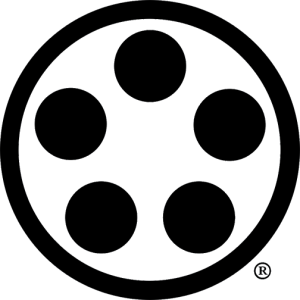The Student Handbook Chapter 2 - First Steps
So, you’ve joined a dojo. You’re probably tense, excited, and not a little uncertain about just what you’ve gotten yourself into. Don’t worry about it. You’re not the first, and you won’t be the last person to feel this way. New disciples of the martial arts have been feeling the same things for hundreds of years.
Actually, you are over the roughest part of your journey already: You’ve taken that first big step and committed yourself to a martial art, an act that has set you apart from the vast majority of people. The world is full of potential students, people who are definitely going to start training...someday. The fact that you have made a decision and acted upon it makes you a member of a select few. (The number, in case you’re interested, is about 1 out of 1,000.)
The fact that you have been accepted is another big hurdle you’ve surmounted. Anybody can walk into a commercial martial arts studio, pay their tuition, and become a student. You, however, have been accepted as a disciple of a dojo. That means that the headmaster of the dojo has seen something worthwhile in you.
I won’t say that it’s all downhill from here, but you are past the two greatest obstacles between an average person and the rank of black-belt. All it takes now is enough stubbornness not to quit. You don’t have to be very intelligent or very athletic, but you do have to be stubborn.
What do you have to look forward to? If you are at all typical, probably the most important learning experience of your life. Twenty years from now you will look back on the actual techniques that you’ve mastered as being relatively unimportant; the things that you learned along with the techniques are what you will value the most. These will include such priceless items as patience, aggressiveness, humility, pride, manners (a new field for most Westerners), an appreciation of elegance, and the ability to operate efficiently under stress. These are abilities which will enhance every aspect of your life.
The Dojo
The Japanese word dojo may be literally translated as Way-Place. It indicates a place where The Way (of the martial arts) is followed. Note the use of the term followed. In a school you study the martial arts; in a dojo you live the martial arts. As you will learn, there is a major difference between these two philosophies.
A dojo is much, much, more than just a school. A school is merely a place where the staff attempts to impart knowledge and physical skills. A dojo, however, is more a state of mind than a place. A traditional dojo doesn’t just teach; it makes a concerted effort to create an entirely new being out of the raw material you provide. Yes, it will change you. It will change your values, it will change your goals, and it will change your attitude toward everything you do.
Think of a dojo as a factory. You provide it with the raw materials (your body and spirit) and it transforms them into a polished warrior. Just about every adjective you can think of may be used to describe the project. It will be fascinating, boring, exhilarating, terrifying, fun, painful, exhausting, challenging, ugly, and beautiful. And it will never be forgotten.
The Ryu
If your new school is a member of a classical ryu (many are not) you should be aware of what that means. Although the term ryu is usually translated as style, a much better translation is tradition. What that means is that the art has been passed down, relatively unchanged, from generation to generation.
To be a member of a ryu automatically places you under certain obligations. As you will discover, there are a great many of these (they accumulate along with seniority), but the two most important involve honor and flexibility.
As a member of a ryu you are one of its official representatives, even though you are only a beginner and don’t have the slightest idea of what you are representing. If, therefore, you should ever do anything of such a nature as to bring discredit upon your dojo, you not only dishonor your fellow students, you dishonor everyone who has ever been a member of the ryu and everyone who may ever become a member of the ryu.
As for flexibility, the ryu has been around a lot longer than you have and it will still be there long after you are gone. That means you are going to have to do all the changing; the art will not be modified, even slightly, to suit your needs or abilities. This may seem somewhat cold-hearted to outsiders, but members of classical ryu wouldn’t have it any other way.
Injuries
You may be nervous about getting hurt. I won’t lie to you about that: you are definitely going to get hurt. This is, after all, an athletic activity, and you will get injured in any form of athletics if you keep at it long enough. Just rest assured that martial arts students tend to pick up more serious injuries while jogging than while training. This is because a good instructor keeps his classes under rigid control. You will be doing some very dangerous things but, because they are done under controlled conditions, serious injuries are very rare. (When an injury does occur, the cause can invariably be traced to a student who didn’t follow directions.)
Although serious injuries are rare, minor injuries will abound. In any form of athletics, and the martial arts are no exception, hard training will produce a continual series of minor aches and pains. If you’re not used to athletic injuries, this may sound very unpleasant, but it’s not as bad as it might seem. By the time you are advanced enough to train really hard you will be having so much fun that you won’t even notice getting hurt. I mean that quite literally. Three months from now you will take a shower the morning after a vigorous class, notice a large bruise, and not have the slightest idea how you got it. Try as hard as you like and you just won’t be able to remember feeling anything during the previous evening’s class that should have hurt.
In addition to the constant minor injuries, you must be prepared for a lot of pain from your first two or three classes—it is not at all unusual for a new student to have trouble getting out of bed the morning after his first class. You won’t die, but it may seem like it. There is nothing wrong; it’s just your body complaining about all the unaccustomed work. No matter how good your present physical condition is, you should be prepared for some pain because you will be using muscles you never knew you had. The worst should be over by your fourth class, so hang in there.
You may also be worried about getting beat up by the advanced students. Most beginners have this secret fear, although very few of them will admit it. Getting hurt by an advanced student should be the least of your worries. Actually, the reverse is true. The seniors are going to be especially gentle with you. They don’t want you to get hurt and drop out; they want you to learn quickly so they can have someone new to play with.
Feeling Stupid
Finally, what about your fear of looking stupid? Sorry, there is no way to escape this one. Everybody feels stupid as a beginner.
The first time you step onto the mat you are going to feel like a complete idiot. Things that everyone else does with ease, you will find totally impossible. This is just another part of the learning experience and every single member of the class, including the instructor, went through the same thing. It’s going to take you two or three weeks to get past your initial feelings of helplessness. Until then, just try to laugh at your mistakes.
Finally...
If there is one thing that every beginner must accept as gospel, it is that things will get better. Everybody that has ever started the martial arts has gone through the same things. They have all experienced the same feelings of inadequacy, fear, and physical pain. And they have always surmounted these feelings, if they didn’t quit.
It will probably take you about three weeks to get over the worst of it and after about three months you will be having fun. Until then you will have to grit your teeth and endure. No one really dies of embarrassment and those sore muscles, after all, are just your body’s way of saying that it’s busy getting stronger.
The End


